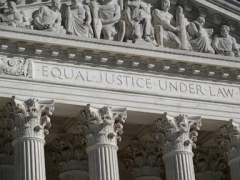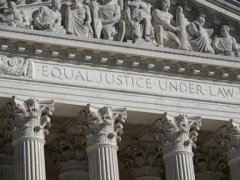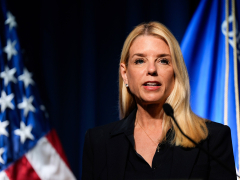WASHINGTON — A major question hangs over the Supreme Court’s closely watched case on President Donald Trump’s far-reaching tariffs: Will the conservative majority hold the Republican president to the same exacting standards it used to limit his Democratic predecessor, Joe Biden?
Key legal principles at the heart of conservative challenges to major initiatives in the Biden years are driving the arguments in the fight against Trump’s tariffs, which is set for arguments at the high court on Wednesday.
The businesses and states that sued over the tariffs are even name-checking the three Trump-appointed conservative justices whose votes they hope to attract to stop a centerpiece of Trump’s economic agenda in a key test of presidential power.
Trump imposed two sets of tariffs, determining that sustained trade deficits had brought the United States to “the precipice of an economic and national-security crisis” and that hundreds of thousands of deaths from imported fentanyl had created a crisis of its own, the administration told the justices.
Until this year, no president had used the International Emergency Economic Powers Act to impose tariffs since its enactment in 1977.
The law makes no mention of tariffs, taxes, duties or other similar words, although it does allow the president, after he declares an emergency, to regulate the importation of “any property in which any foreign country or a national thereof has any interest.”
That authorization, the administration argued, is enough to support the tariffs, and the absence of any “magic words” is irrelevant.
During Biden’s presidency, conservative majorities made it harder to fight climate change under existing law and blocked several actions related to the coronavirus pandemic.
The court ended a pause on evictions, prohibited a vaccine mandate for large businesses and rejected Biden’s $500 billion student loan forgiveness program.
In each case, the court held that Congress had not clearly authorized an action of economic and political significance, a legal principle known as the major questions doctrine.
The Washington-based U.S. Court of Appeals for the Federal Circuit had little trouble applying those precedents to the tariffs case.
Referring to the eviction pause and the student debt cases, a seven-judge majority wrote, “Indeed, the economic impact of the tariffs is predicted to be many magnitudes greater than the two programs that the Supreme Court has p






